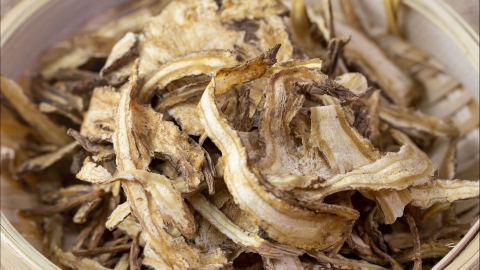Can people with anemia eat angelica root (Danggui)?
In general, whether patients with anemia can consume Angelica sinensis (Danggui) depends on the type of anemia. For anemia caused by deficiency of qi and blood, moderate consumption of Angelica sinensis under professional guidance may help support调理; however, for anemia caused by iron deficiency, hemolysis, or impaired hematopoietic function, taking Angelica sinensis usually has no significant effect and may even cause discomfort in some cases. The detailed analysis is as follows:

If the anemia falls under the category of "deficiency of qi and blood" in Traditional Chinese Medicine (TCM), and the patient presents symptoms such as pale complexion, dizziness, fatigue, and light menstrual flow, Angelica sinensis—which has the effect of nourishing and activating the blood—may be consumed in moderation to help improve the deficiency of qi and blood and alleviate related discomfort. In such cases, consuming Angelica sinensis may provide certain benefits, but it should be combined with other ingredients or herbs and taken in controlled amounts.
However, if anemia is caused by iron deficiency, vitamin B12 deficiency, hemolysis, or bone marrow hematopoietic dysfunction, Angelica sinensis cannot replenish the missing nutrients, repair hematopoietic function, or improve hemolytic conditions, thus offering no substantial benefit in correcting the anemia. Some patients may even experience adverse effects such as heatiness or increased bleeding after consuming Angelica sinensis; therefore, its use is not recommended in these cases.
Patients with anemia should pay attention to dietary adjustments in daily life. Those with iron-deficiency anemia should eat more iron-rich foods such as lean meat, animal liver, and spinach; those with vitamin B12 deficiency should moderately increase intake of meat, eggs, and dairy products.







